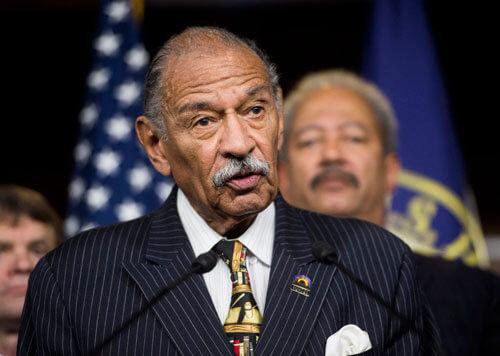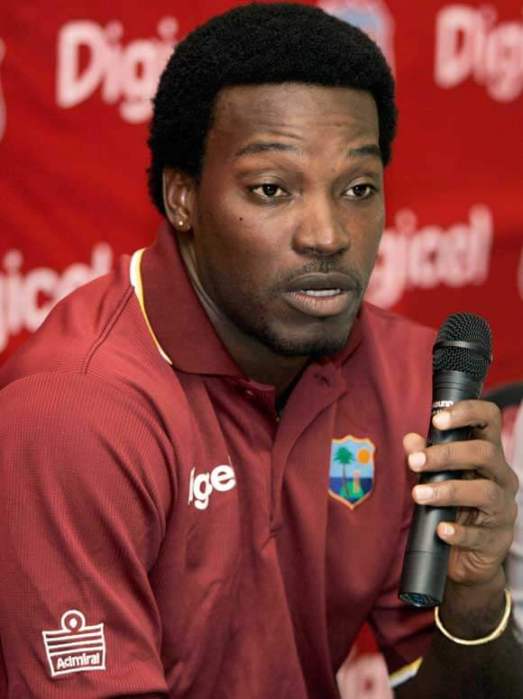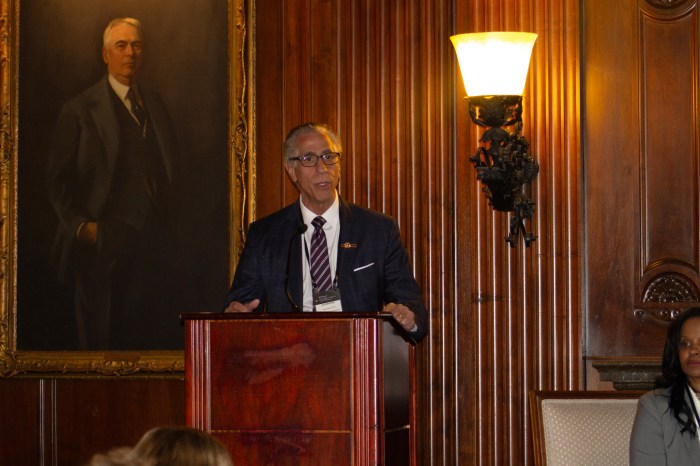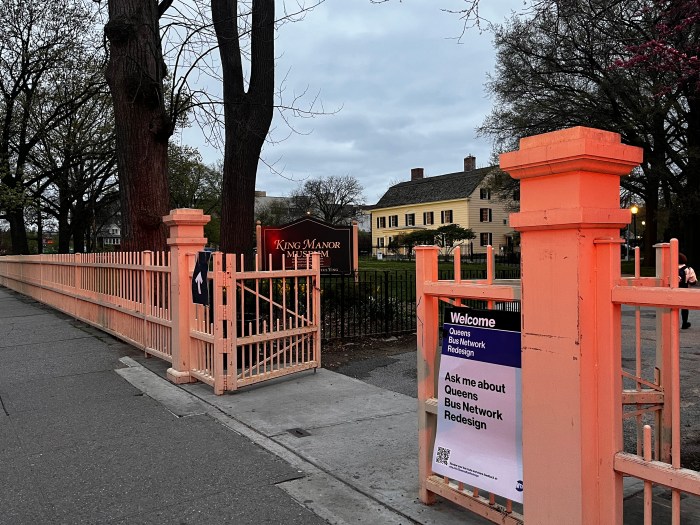The Institute of the Black World 21st Century (IBW), a leading research, policy and advocacy group with offices in New York and Baltimore, says it is holding an International Reparations Summit at various sites across New York City from April 9-12, 2015.
IBW announced on Friday that speakers at the conference include Prof. Sir Hilary Beckles, vice-chancellor of the University of the West Indies and chair of the Caribbean Community’s (CARICOM) Reparations Commission; U.S. civil rights leader the Rev. Jesse Jackson; Prof. Charles Ogeltree of Harvard University; and Mireille Fanon Mendes France, president of the Frantz Fanon Foundation and Chair of the U.N. Working Group of Experts on People of African descent and daughter of Frantz Fanon, the Black liberation theoretician and psychiatrist from Martinique.
During the summit, U.S. Rep. John Conyers Jr. (D-Michigan), the most senior member of the U.S. Congress and the dean of the Congressional Black Caucus (CBC), will be honored for authoring a bill, HR 40, the “Commission to Study Reparation Proposals for African Americans Act” and for his 50 years of service on Capitol Hill.
“We are delighted that the Institute of the Black World can be a clearinghouse for ideas and strategies on how to pursue reparations for historical crimes and injustices against people of African descent in the U.S. and across the Americas,” said Dr. Ron Daniels, the Institute’s president. “The courageous decision by nations in the Caribbean to demand reparations from the former European colonialists for Native Genocide and African enslavement and the formation of a CARICOM Reparations Commission is re-energizing the Reparations Movement in the U.S. and throughout the Pan African world.”
IBW said scores of reparations advocates, pan-Africanists and social justice activists from across the U.S., Canada, Europe, Latin America and the Caribbean will take part in the New York summit.
It said leaders of national reparations commissions, committees and task forces from 11 CARICOM nations will interface with leaders of the recently-formed European Reparations Commission and with members of the National African-American Reparations Commission (NAARC), which will be formally launched during the conference.
The NAARC will comprise of some of the leading scholars, activists, attorneys, economists and historians in Black America.
In the months ahead, IBW said the NAARC will hold a series of town hall meetings across the country designed to solicit ideas from African-American communities on what should constitute a comprehensive program that advocates for reparations for the historical crimes of slavery and segregation.
“The main purpose of the international summit is to advance the public discussion and debate around reparations issues and to provide a platform for advocates from around the world to dialogue, learn from each other, strategize collectively, support and reinforce each other’s campaigns, build bridges across geographical and linguistic barriers and co-ordinate action plans,” said Don Rojas, IBW’s Vincentian-born director of communications and former press secretary for slain Grenada revolutionary leader and prime minister Maurice Bishop.
“The international nature of this summit is unprecedented in the long, and all too often ignored and marginalized, history of the reparations movement in the Americas,” he added.
The conference, whose opening and closing public sessions are to be webcast and audiocast live by New York-based WBAI-Pacifica Radio and Sirius XM Satellite Radio, will be held in three of New York City’s five boroughs—Manhattan, Brooklyn and Queens.
The conference begins at the historic Mother AME Zion Church in Harlem, the oldest black church in New York State and a center for the Underground Railroad back in the 19th Century.
The business sessions will be held at York College in Queens, and the summit will conclude with a public rally at the First AME Zion Church in Central Brooklyn, home to the largest Caribbean community in the United States.
One of the highlights at the closing rally will be inspirational music sung by a newly-formed “Reparations Choir”, composed of members from several black churches in Brooklyn, IBW said.
It said the three-day meeting will honor pioneers in the fight for reparations for Black Americans, including Callie House (1861-1928), a former slave who demanded that US$68 million in taxes on Confederate cotton seized by the North be given to Blacks as reparations; and Queen Mother Moore (1898-1997), a longtime Harlem activist who popularized the reparations idea in the middle 20th century. It will also pay tribute to the tireless work over many years of The National Coalition of Blacks for Reparations in America (N’COBRA).
“Reparations is not an issue of the distant past. The Japanese-American community demanded—and got—reparations in the late 1980s for how they were treated by the American government—their own government—during World War II”, said Daniels referring to the internment of those Japanese by the United States.
“And in 2015, the parliaments of Russia and Greece are voting to demand Germany pay them for the damage inflicted on them by the Nazis,” he added. “So this issue is not, and should not, go away, particularly when African-descended people are concerned.”
Daniels said reparations is an issue that has occasionally flared up in Black political circles since the end of slavery in the mid-19th Century.
He said it has been publicly opposed by several U.S. presidents and dismissed by most white Americans, added that “it has always found a place on the Black political agenda.”
Daniels noted that at the U.N.’s Conference on Racism in Durban, South Africa in 2001, the Atlantic slave trade and chattel slavery was declared a “crime against humanity” and was described as the greatest holocaust in human history.
Hundreds of reparations activists from the U.S. and the Caribbean participated actively in the Durban conference, “which helped to infuse the reparations movements with new energy at the beginning of the 21st Century”, Daniels said.
But he noted that that energy petered out in the first decade of the new century.
IBW, however, believes that today this pattern is changing. A June 2014 cover story in The Atlantic magazine, “The Case for Reparations,” by prominent journalist Ta-Nehisi Coates, generated much discussion in African-American communities. as well as within elite white American intellectual and political circles.
The IBW International Reparations Summit comes two years after the 15-nation CARICOM group decided unanimously to form a reparations commission and to demand that the former European colonial and slave-trading powers pay the debt owed to African people in the Caribbean region for the enormous wealth made off of their forced and uncompensated labor during the centuries of African enslavement.
In January 2014, CARICOM issued a 10-point program for “Reparatory Justice” that frames their reparations demands as a “development strategy”.
The program’s stated goal is “to use reparations payments to deal collectively with pressing economic and educational problems facing the citizens of the Caribbean that trace their origins to the underdevelopment imposed by slavery, slave trading, native genocide, and economic exploitation by the European nations.”
CARICOM’s 10-Point Program enjoys the unanimous support of all the member-countries in the Community of Caribbean and Latin American States (CELAC) and the Bolivarian alliance for the Peoples of the Americas (ALBA).
























